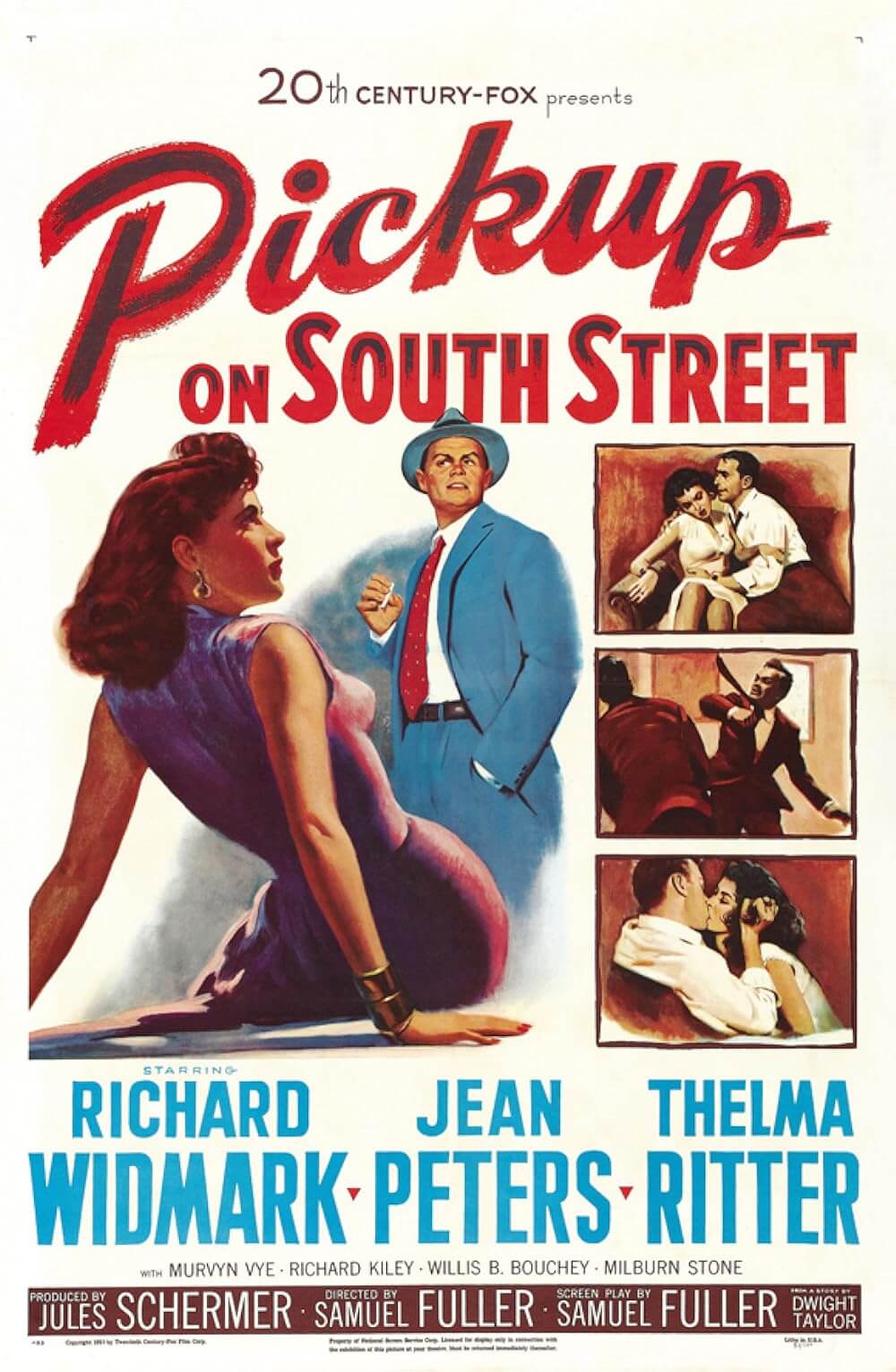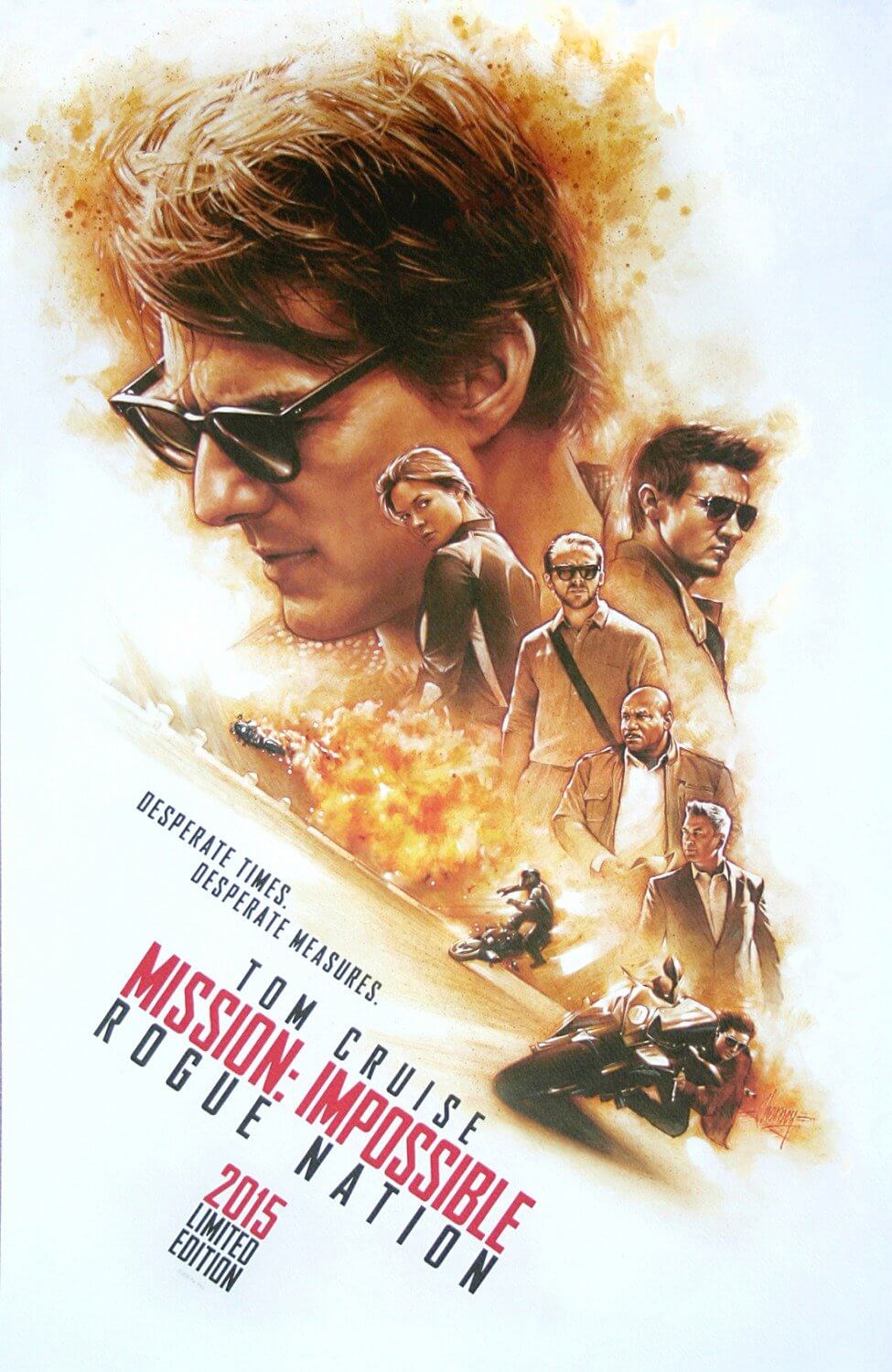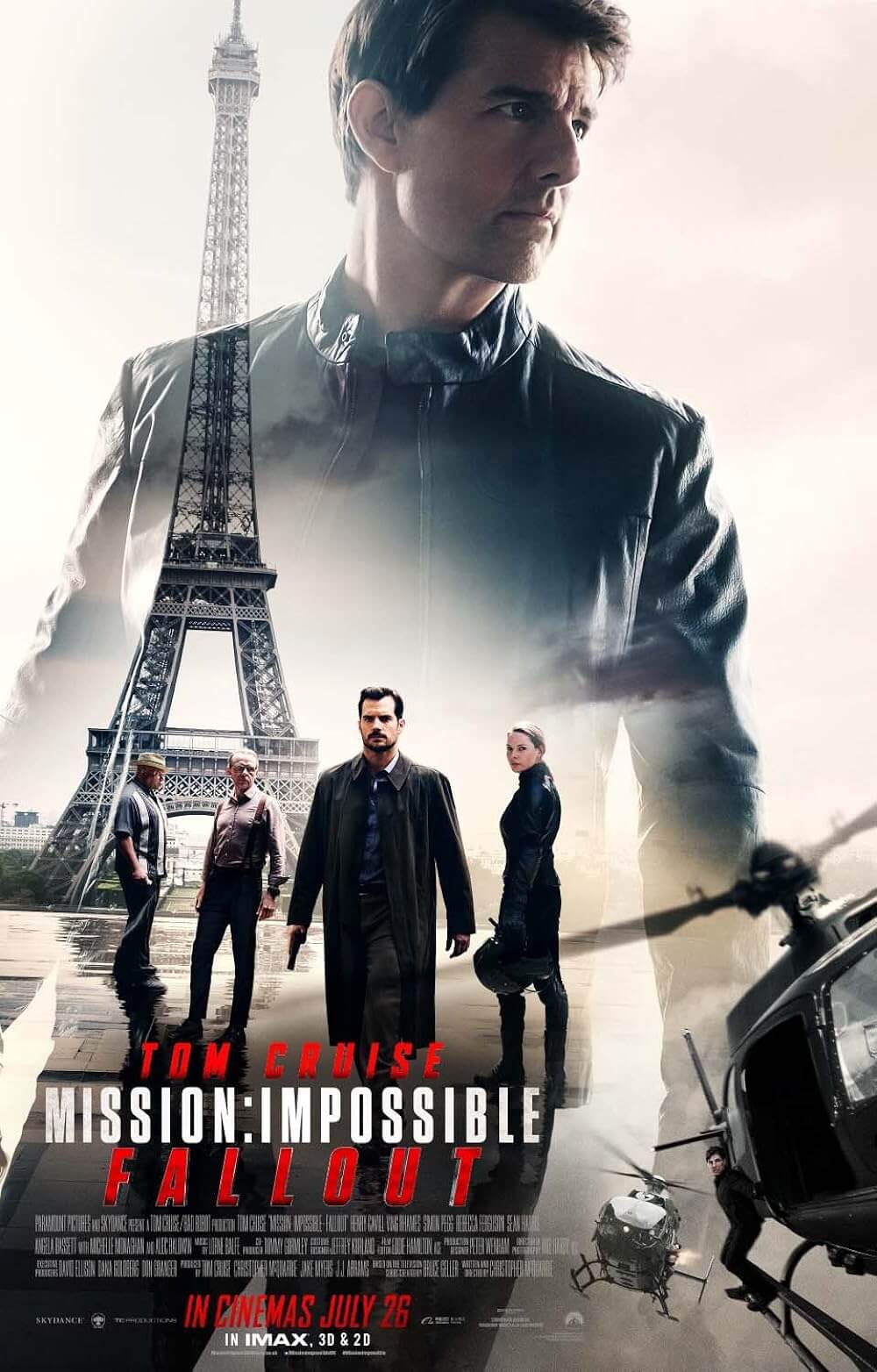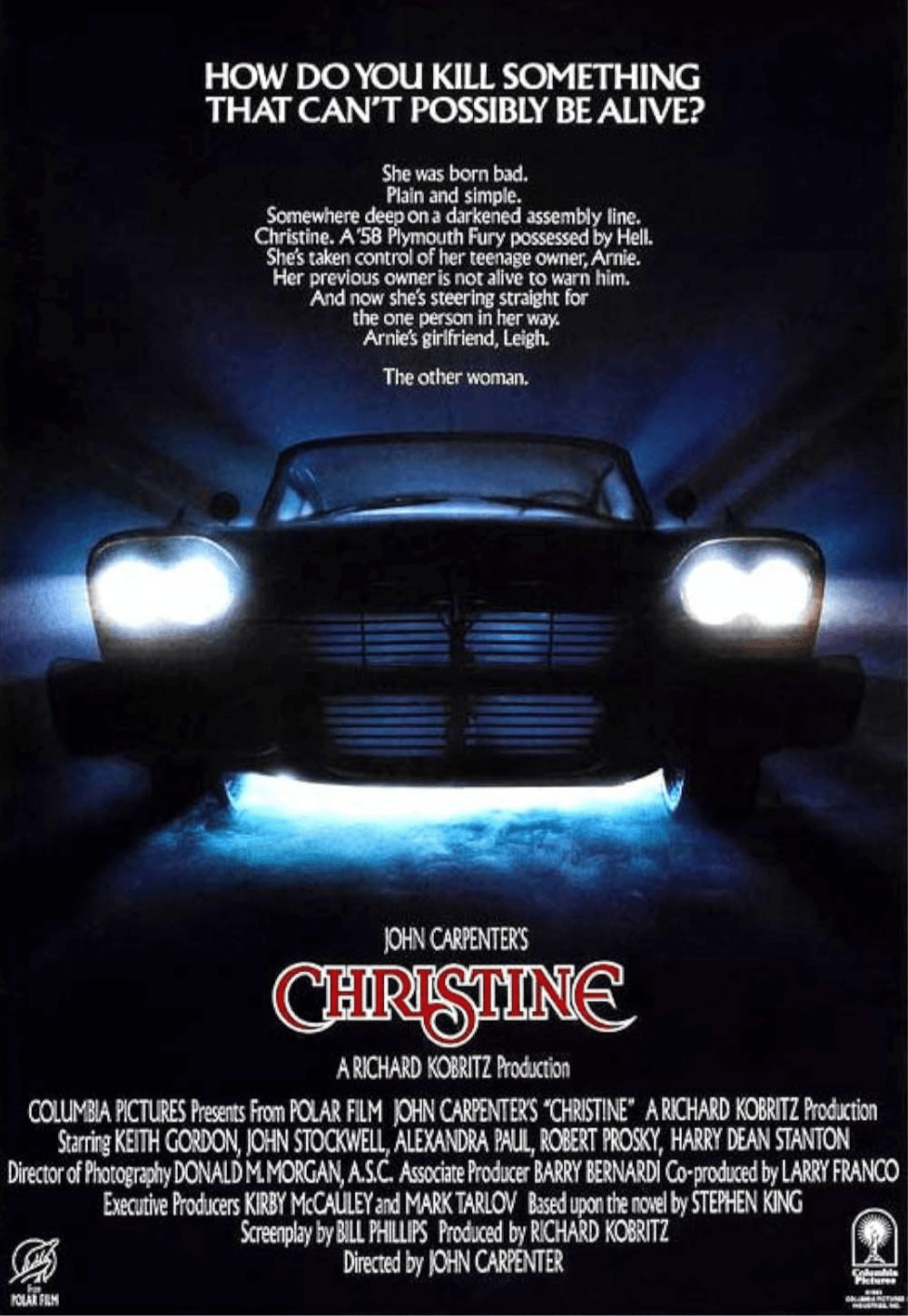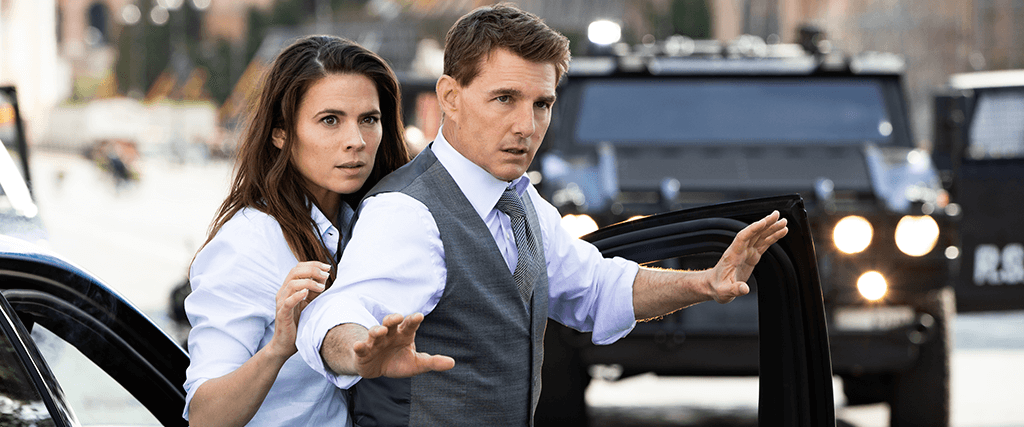
Mission: Impossible – Dead Reckoning Part One
By Brian Eggert |
As a critic, it’s sometimes difficult to separate my critical mindset from my fandom for a series. Although I consider myself a critic first and a fan second, certain movies challenge that order. This is especially true of the Mission: Impossible franchise, which started with my favorite of the bunch, Brian DePalma’s 1996 original, dipped near to oblivion with John Woo’s maligned 2000 sequel, and has been steadily terrific since J.J. Abrams revived the franchise in 2006. Tom Cruise’s longtime collaborator Christopher McQuarrie wrote and directed the last two superb installments, Rogue Nation (2015) and Fallout (2018), but his work on Mission: Impossible – Dead Reckoning Part One can’t help but feel disappointing compared to the last four sequels. It’s not a bad film by any stretch; rather, it’s quite good, full of impressive action sequences and memorable stunts by Cruise. Still, as the critical part of me recognizes a worthy film but questions many of McQuarrie’s choices, which aren’t quite up to the series’ standards, my disappointment as a fan can’t help but accentuate its faults.
Collaborating on a Mission: Impossible script for the first time, McQuarrie co-wrote Dead Reckoning with Erik Jendresen (Band of Brothers). Their screenplay adopts a tone that deviates from the playful and nimble spy-thriller scenarios found in the series. Rather like Woo’s Mission: Impossible II, the self-seriousness and gravity rob the material of much of its potential pleasures. Whereas earlier sequels by McQuarrie dealt with lofty stakes and an uber-serious villain, they had a certain pleasure and lightness. Cruise had an exasperated humor to his performance. The supporting cast (Simon Pegg, Ving Rhames, and Rebecca Ferguson) brought levity. All of these things are true about Dead Reckoning Part One, except the ingredients have been rebalanced, so the formula feels off. Yes, there’s humor, but it’s much less present than in previous entries. Yes, Cruise has ironic “Really?” moments, but they don’t feel as punchy, and neither do the supporting characters.
Certainly, any franchise should have creative license to change its tone or deviate from the formula. After all, every cinematic extended universe these days has entries that prove alternately lighthearted and grave, yet their storytelling power remains. Movies become dull when they merely attempt to replicate a proven formula. But McQuarrie’s aesthetic in Dead Reckoning Part One seems to want to copy Christopher Nolan’s grandiosity found in Inception (2010) or Tenet (2020). Note composer Lorne Balfe’s heavy score that neutralizes the mood with flatness in extended, gravitas-laden notes, recalling Hans Zimmer’s work for Nolan. These flourishes feel at odds with cinematographer Fraser Taggart’s lensing, which relies too much on crooked Dutch angles to enliven simple dialogue or expositional scenes. (McQuarrie’s previous cinematographers, Robert Elswit and Rob Hardy, are sorely missed.) Eddie Hamilton’s distracting editing slices and dices basic conversations, alternating between Taggart’s various cocked angles where a simple, straightforward two-shot may have sufficed. Given the weighty music and high-spirited visuals, the images and score don’t feel aligned.
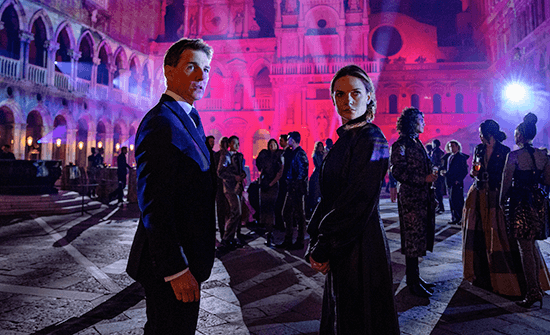 Along with the return of Kittridge (Henry Czerny), who’s been absent since leaving a mark on the first Mission: Impossible, the new film pays homage to De Palma’s slick original with everything from the arch camera angles to the climactic sequence on a train. The filmmakers even replicate Kittridge’s “I understand you’re upset” exchange with Ethan Hunt (Cruise). But if McQuarrie sought to recapture some of the magic of the 1996 film, he overlooked its charm and playful razzle-dazzle of Danny Elfman’s score. Instead, the stakes may be the highest they’ve ever been. The first sequence takes place in the Bering Sea on a submarine, which carries a new targeting system, “the most fearsome killing machine ever devised by man.” But the threat isn’t so much the sub’s missiles as the mysterious rogue AI known as “The Entity” that has achieved sentience, accessed every known form of digital information on the planet, and manipulated people to obtain the two-part key that gives access to its source code. For the intelligence community, obtaining the key means controlling The Entity, which means controlling information for future generations.
Along with the return of Kittridge (Henry Czerny), who’s been absent since leaving a mark on the first Mission: Impossible, the new film pays homage to De Palma’s slick original with everything from the arch camera angles to the climactic sequence on a train. The filmmakers even replicate Kittridge’s “I understand you’re upset” exchange with Ethan Hunt (Cruise). But if McQuarrie sought to recapture some of the magic of the 1996 film, he overlooked its charm and playful razzle-dazzle of Danny Elfman’s score. Instead, the stakes may be the highest they’ve ever been. The first sequence takes place in the Bering Sea on a submarine, which carries a new targeting system, “the most fearsome killing machine ever devised by man.” But the threat isn’t so much the sub’s missiles as the mysterious rogue AI known as “The Entity” that has achieved sentience, accessed every known form of digital information on the planet, and manipulated people to obtain the two-part key that gives access to its source code. For the intelligence community, obtaining the key means controlling The Entity, which means controlling information for future generations.
While the plot moves from Amsterdam to Yemen to Rome, Kittridge and other world powers race to acquire the MacGuffin. But Ethan, the techie Benji (Pegg), the even techier Luther (Rhames), and MI6 agent Ilsa Foust (Ferguson) realize that no single government should have that much power, so they seek to locate the key to keep it out of everyone’s hands. They have competition, including Gabriel (Esai Morales), a mysterious figure from Ethan’s past who’s partnered with a ruthless assassin named Paris (Pom Klementieff). There’s also the arms dealer known as the White Widow (Vanessa Kirby). Additionally, the US intelligence community has tasked Jasper Briggs (Shea Whigham) and his partner Degas (Greg Tarzan Davis) with stopping Hunt and getting the key. But the most compelling competition is Grace (Hayley Atwell), a skilled thief with no allegiances, recalling Richard Widmark’s defiant presence in Pickup on South Street (1953), a clear inspiration here.
All of these parties want the key, but none of them except The Entity knows what exactly the key unlocks. The audience knows too, since MacQuarrie and Jendresen showed us in the first scenes. So it’s a curiously deflated experience feeling one step ahead of the characters, whereas many of the Mission: Impossible films unfold with Ethan always one step ahead of us, seeing every angle well before we do. That’s usually part of the fun, watching how he defies all expectations. By contrast, knowing what the key opens is a bit like knowing that Rosebud was Charles Foster Kane’s sled in the first scene of Citizen Kane (1941). Imagine the reporter in that film asking about Kane’s identity and what his last words might’ve meant, and all the while, we already know. Quite simply, it’s not as involving. Even so, McQuarrie no doubt intended this choice to heighten the conflict, placing the all-knowing AI in charge. It’s a timely and chilling villain, given all the current discourse about AI in Hollywood, business, and beyond. The Entity is always one step ahead of Ethan and company—it can access any information, render their technology useless by falsifying audio and video signals, and calculate their every possible move. Impossible mission, indeed.
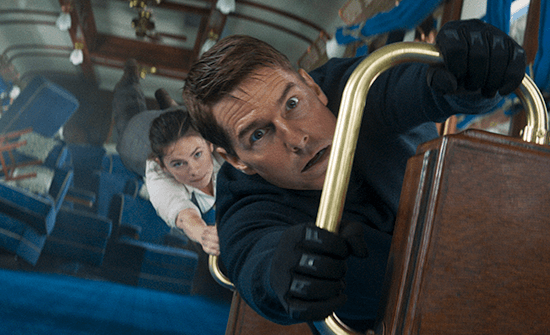 Setting aside whatever quibbles I have about the tonality and plotting, McQuarrie and Cruise remain showmen, committed to giving audiences a spectacle that demands to be seen in the theater. With so many various parties vying for the key, Dead Reckoning Part One boasts several elaborate action sequences and set pieces, each more impressive than the last, including tense knife fights, wowing vehicular chases, and smart spycraft. A car chase in Rome brings much-needed levity to the proceedings, complete with Atwell’s effervescent presence and Cruise’s humorous out-of-his-depth reactions. If signs that the 60-year-old Cruise is hiding his age are starting to show (I look forward to his silver fox stage), his willingness to do many of his own stunts remains a major draw. His much-publicized motorcycle jump off a cliff is a stunner, despite its oversaturation in the film’s marketing, and the finale is a breathless, seat-rumbling sequence involving a runaway train (do yourself a favor, and see it in IMAX). Viewers looking to escape into action will get their money’s worth over McQuarrie’s indulgent 163-minute runtime that maintains an unrelenting pace.
Setting aside whatever quibbles I have about the tonality and plotting, McQuarrie and Cruise remain showmen, committed to giving audiences a spectacle that demands to be seen in the theater. With so many various parties vying for the key, Dead Reckoning Part One boasts several elaborate action sequences and set pieces, each more impressive than the last, including tense knife fights, wowing vehicular chases, and smart spycraft. A car chase in Rome brings much-needed levity to the proceedings, complete with Atwell’s effervescent presence and Cruise’s humorous out-of-his-depth reactions. If signs that the 60-year-old Cruise is hiding his age are starting to show (I look forward to his silver fox stage), his willingness to do many of his own stunts remains a major draw. His much-publicized motorcycle jump off a cliff is a stunner, despite its oversaturation in the film’s marketing, and the finale is a breathless, seat-rumbling sequence involving a runaway train (do yourself a favor, and see it in IMAX). Viewers looking to escape into action will get their money’s worth over McQuarrie’s indulgent 163-minute runtime that maintains an unrelenting pace.
Part Two of Dead Reckoning (and possibly the end of the Cruise-era Mission: Impossible franchise) will arrive in theaters next summer. Hoping to give the series an epic goodbye, McQuarrie has not only elevated the threat but injected a “this time, it’s personal” storyline for his lead character—rooted in thus-far incomplete backstories involving Ethan’s past with Gabriel and Jasper that will doubtlessly materialize in Part Two. McQuarrie’s story might be overcompensating to give the franchise an appropriately awe-inspiring send-off, but at times, it’s at the sacrifice of the sequel aligning with the other entries. Maybe in Dead Reckoning Part Two, every element that feels disparate and unengaging here will click together. Until then, the film represents a mild letdown, especially after the (let’s face it, untoppable) heights of Fallout, which is perhaps where the series should have ended. But as I mentioned, the critical part of me knows Dead Reckoning is better than my fan mentality will grant. Despite my inner conflict, it’s easy to recommend the experience as a blockbuster that warrants your three hours.
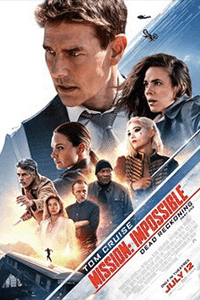
Unlock More from Deep Focus Review
To keep Deep Focus Review independent, I rely on the generous support of readers like you. By joining our Patreon community or making a one-time donation, you’ll help cover site maintenance and research materials so I can focus on creating more movie reviews and critical analysis. Patrons receive early access to reviews and essays, plus a closer connection to a community of fellow film lovers. If you value my work, please consider supporting DFR on Patreon or show your support in other ways.
Thank you for your readership!
Brian Eggert | Critic, Founder
Deep Focus Review


